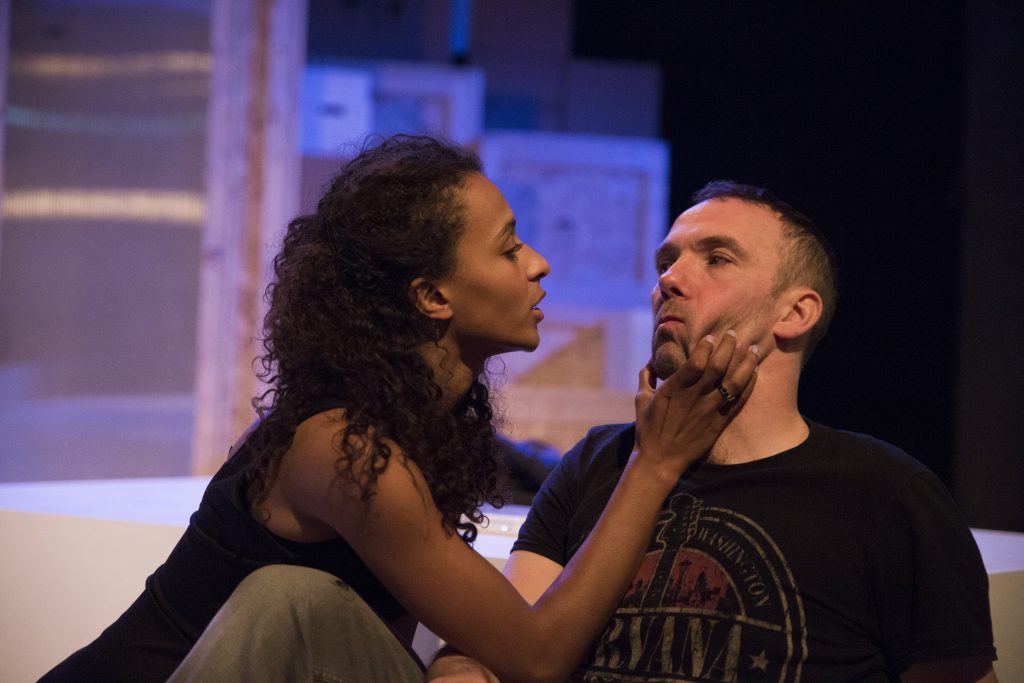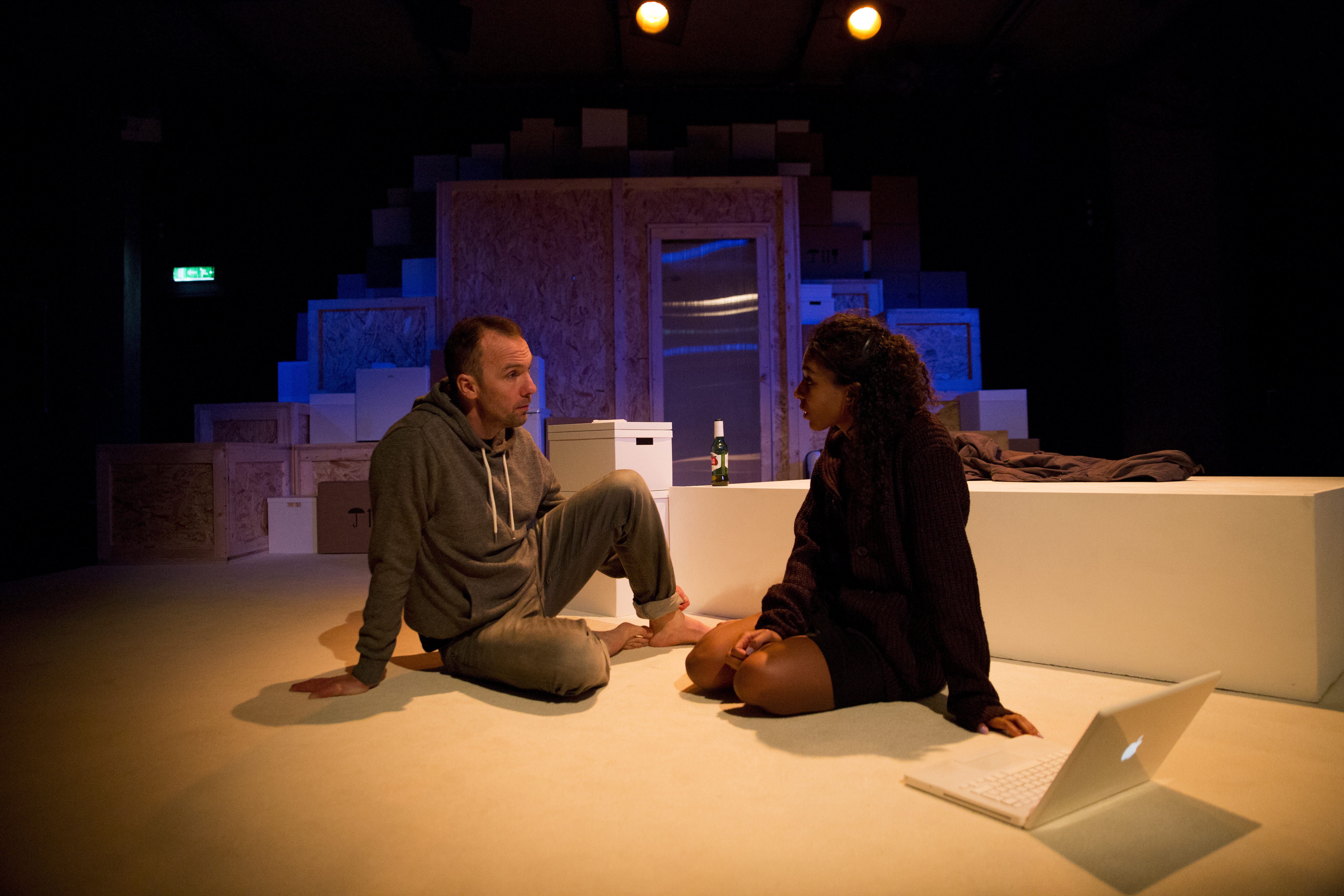ROB STEVENS reviews Abigail at The Bunker Theatre.
Fiona Doyle’s Abigail subverts the simple boy-meets-girl romance story, bringing into focus unthought of realities and ramifications of childhood domestic abuse later in life. Attempting to hold down a normal relationship, the unnamed female protagonist (Tia Bannon) cannot help becoming her new man’s (Mark Rose) antagonist as she tries to deal with her past.
Abigail‘s delicate charting of the psychology of abusive relationships is clearly the most commendable part of this production. Structurally, it has a powerful effect–showing the beautiful first few dates and then contrasting this romantic tone with the destructive final moments of their relationship. As the relationship develops into something more honest and genuine, our female protagonist’s demons project themselves onto her partner. With a history of sexual activity first recorded in childhood, we see her as an adult split between romance and torture, and led to the edge of collapse.

I felt like I had been brought into an intimate understanding of why the couple’s relationship turned from sweet to terrifying, and the hour was chillingly coherent. I could understand why she felt urges to replay her abusive childhood in a safer setting, and why the relationship was cathartic for precisely the wrong reasons. It became horrible to watch the relationship unfurl–how “he couldn’t possibly leave her” because she “had to look after him”.
Tia Bannon and Mark Rose gave at times deeply moving performances, although as a whole the performance felt unsteady, with clear areas of strength and weakness on display. In the fledging hours of their relationship, Rose seemed truly vulnerable and honest, and as the subject matter got heavier Bannon certainly was convincing in her role as tyrant–a sharp and well-managed departure from what had seemed like a wish to be taken care of. The later stages of the play became sadly less persuasive, particularly the “sweet young girl” character Bannon was to play.
The set–a literal mountain made of wooden shipping containers–was ingenious and creative. However, smaller uses of props, like a bottle falling to the sound of a virtual smash, slightly broke the spell of a play that so carefully constructed a tone of intimacy and reality.
A larger problem was the pacing. The transitions between the past and the present felt awkward, and weighed down moments of closeness before they were allowed to reach a crescendo. The juxtaposition of the two states of the relationship was certainly chilling, yet the jumps back and forth between the two were quite exhausting.
Despite its flaws Abigail developed into an engaging, nuanced plot offering a deep, humane understanding of the issues discussed. More than this though, to put it simply, I did really enjoy it. Though the play could have offered more insight into certain aspects of the relationship, I valued the time I had here.





